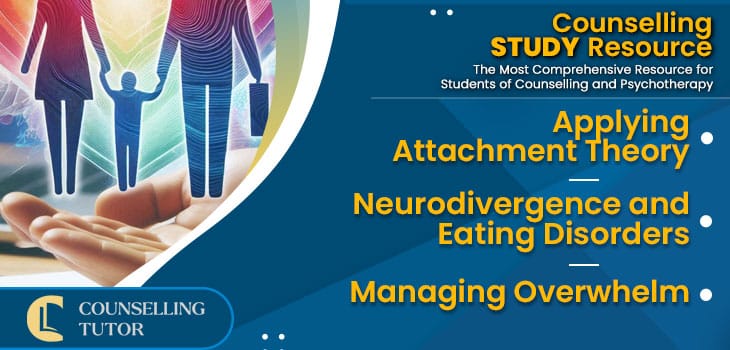See Counselling Skills Used in Real Sessions by Qualified Therapist
Real Sessions – Real Presentations – Real Skills
Gain the competence and confidence to use counselling techniques effectively!

In Episode 325 of the Counselling Tutor Podcast, your hosts Rory Lees-Oakes and Ken Kelly take us through this week’s three topics:
Applying Attachment Theory
Rory and Ken discuss the key components of applying Attachment Theory and how understanding different attachment styles can enhance our work with clients. Attachment theory forms the foundation of human bonding, and understanding it allows therapists to work more effectively with clients, especially those who struggle with relationships.
This discussion highlights the following key points:

Real Sessions – Real Presentations – Real Skills
Gain the competence and confidence to use counselling techniques effectively!
In this week’s ‘Practice Matters’, Rory speaks with Bernie Wright and Lisa Smith, who discuss their work on eating disorders, disordered eating, and neurodivergence. They explain how neurodivergent conditions such as autism and ADHD can lead to unique challenges in eating behaviour, often requiring specialised therapeutic interventions.
The key points of this conversation include:

On-demand access to a rich lecture library covering theory, skills, and professional development for counselling students—Mapped to the UK awarding body criteria
“The Student Library has been BRILLIANT, I can’t recommend it enough!
It has been a lifeline in helping me prepare for practice and my first clients. If you’re considering it, go-for-it, it’s absolutely worth it!”
Kelly – Graduated and now in practice.
In this section, Rory and Ken discuss how counselling students can manage feelings of overwhelm during their studies. They provide valuable advice on balancing academic demands, personal therapy, and practice.
The key points include:
Applying Attachment Theory

Get on-demand Certified CPD that is implementable in your practice
